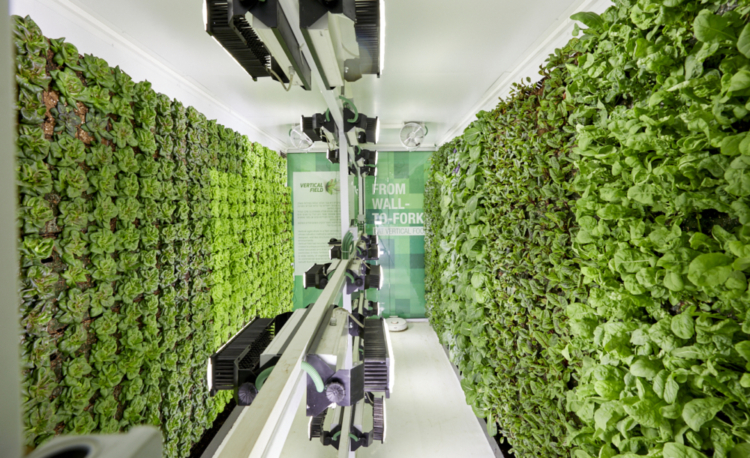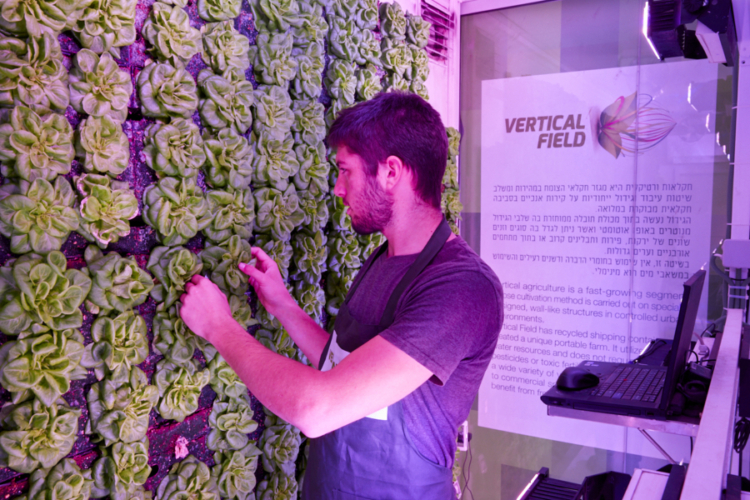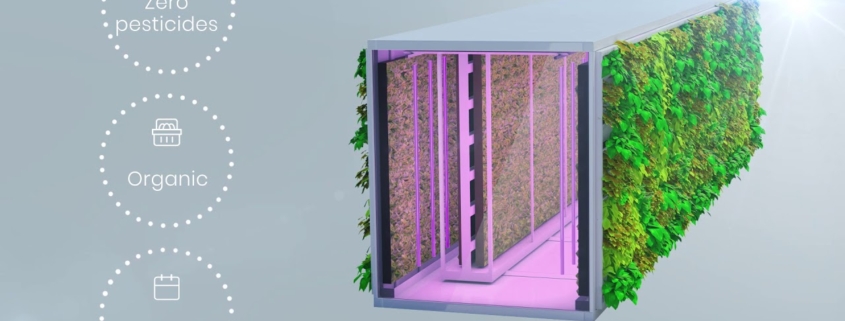Vertical Field’s vertical farms help get Produce to Market in Times of Crisis
In good times or bad, having food grown closer to where it’s consumed can often be a good backup, or even first choice. This is true in urban areas as well as rural, and vertical farms are a great option.
Indoor urban vertical farms such as those created by startup Vertical Fields can grow produce in warehouses with controlled climate and light conditions. These setups are seeing a surge in demand that could signal a lasting change in how we get our fruits and vegetables.
Since COVID-19 has thrown a wrench in supply-chain logistics, food packaging plants and farms have shut down due to sick workers, and trucking routes have been disrupted by lockdowns. Harvests are being left to rot in the fields.
People are more concerned about who is handling their food, where it’s coming from, and how many stops it had before hitting the shelves.
Because a majority of people now live in cities, and very little of our food is produced there, it makes sense to bring the farm to the city

One pioneering agro-tech company, Vertical Field, is harnessing the power of geoponic technology, agricultural expertise, and smart design to tackle all of these issues and more. The Israeli startup – cited by Silicon Review as a “50 Innovative Companies to Watch in 2019” and named by World Smart City in 2019 as “Best Startup” – produces vertical agricultural solutions that help the environment, improve human health conditions, cut down on human handling, reduce waste, and make fresh, delicious and more produce available 365 days a year locally and directly to consumers and other end users.
“Vertical Fields offers a revolutionary way to eat the freshest greens and herbs, by producing soil based indoor vertical farms grown at the very location where food is consumed,” said Vertical Field’s Chief Executive Officer, Guy Elitzur of Ra’anana, Israel who is hoping to place his ‘vertical farms’ in retail chains and restaurants establishments in cities throughout the US.
“Not only do our products facilitate and promote sustainable life and make a positive impact on the environment, we offer an easy to use real alternative to traditional agriculture. Our Urban farms give new meaning to the term ‘farm-to-table,’ because one can virtually pick their own greens and herbs at supermarkets, restaurants or other retail sites,” he adds.
Vertical Field’s Urban Crops offers an ideal alternative to traditional agriculture, especially in urban settings where space is scarce. The soil-based platform can grow hundreds of types of crops – pesticide-free, indoors or outdoors – and requires no training to operate.

From Wall to Fork
Vertical farming in cities is an energy-efficient, space-saving, farming alternative to traditional crops grown in acres and fields. Thanks to Vertical Field, everyone from city planners and architects to restaurants, supermarkets, hotels are using vertical farming to create lush, green edible spaces in congested areas around the world.
Portable Urban Farm
An alternative to the living wall is Vertical Field’s unique Vertical Farm®, which can be placed in either a 20-ft or 40-ft. container equipped with advanced sensors that provide a controlled environment. This technology constantly monitors, irrigates, and fertilizes crops throughout every growth stage. Healthy, high-quality fruits and vegetables flourish in soil beds that contain a proprietary mix of minerals and nutrients.
Advantages of Vertical Field’s Vertical Farm:
- Bug-free and pesticide-free – healthy, fresh, and clean produce
- Less waste – uses 90% less water
- Shorter growing cycles, longer shelf life
- Plants are “in season” 365 days/year – grow whatever you want, no matter the weather or climate conditions of the geography
- Consistent quality
- Modular, expandable, and moveable farm
- Automated crop management
- More Sterile Environment
- Less Human Contact
About Vertical Field
Vertical Field is a leading agro-tech provider of vertical farming and living green wall solutions for urban environments and smart cities. The company is operated by professionals, agronomists, researchers, and a multi-disciplinary team, enabling the development of smart walls that combine the best of design and manufacturing, smart computerized monitoring, soil-based technology, water and lighting technology and more. Vertical Field delivers next-generation vertical farming systems for a global clientele, including Facebook, Intel, Apple, Isrotel, Microsoft, and many more.






